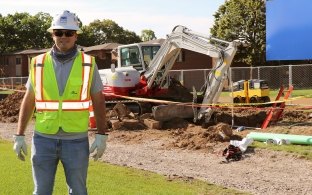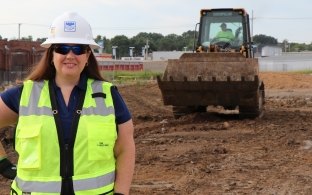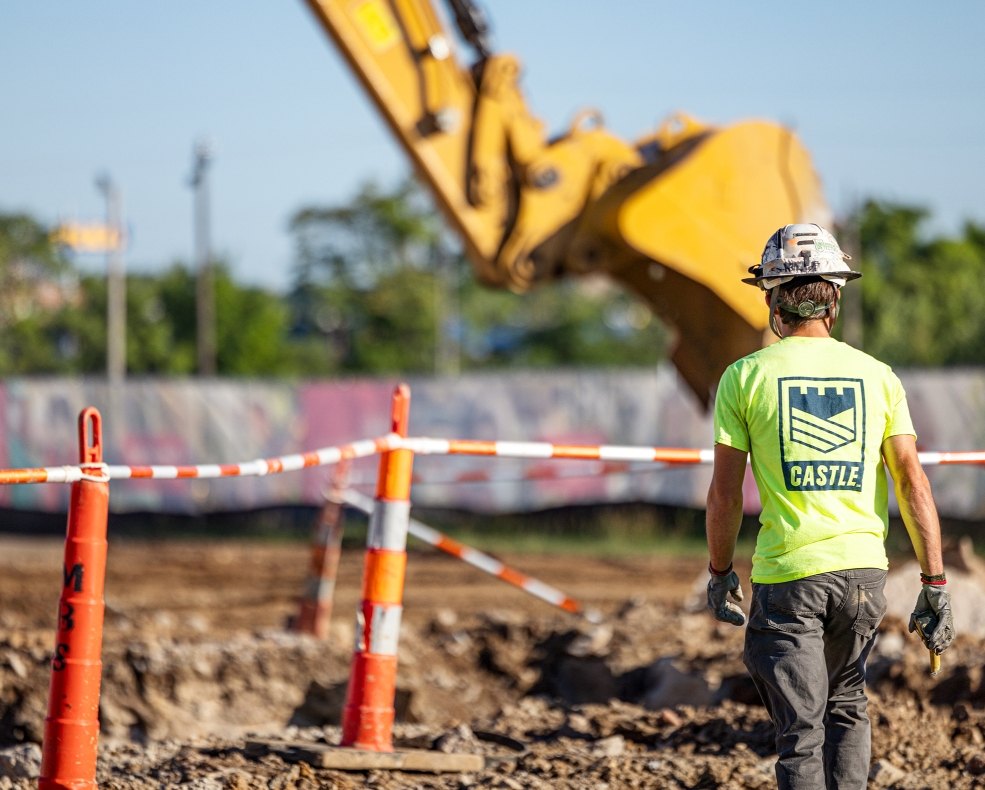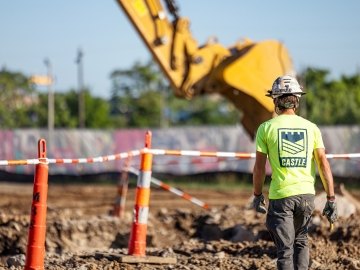Developing the Next-Generation Civil Construction Workforce
Across the country, recruiting is more difficult than ever. For a skilled industry like civil construction, the dearth of talent makes an even bigger impact.


Across the country, recruiting is more difficult than ever. For a skilled industry like civil construction, the dearth of talent makes an even bigger impact. Castle Sr. VP of Operations Mike Pranger knows that this issue has long-term consequences.
In his role, Pranger is responsible for understanding our business and industry in detail. He knows that the core of any company isn’t the equipment or the office – its people. Castle’s impressive growth over the years has relied on our ability to bring in the right craft workers to build on our past success.
Pranger believes that resolving the construction recruitment shortage will require education and a change of societal perspectives.
Forecasting Construction Jobs Amid Continued Hiring Challenges
“Availability of talent in the marketplace is the biggest challenge,” says Pranger. “Companies are all vying for the same folks, and finding the experience needed can be tough.”
The shortage of trained, qualified civil construction workers could have a lasting impact on society. The U.S. Chamber of Commerce found that 88% of commercial construction contractors report having moderate to high levels of difficulty finding skilled workers. A further third said they have turned down projects due to a lack of workers.
By 2025, the construction industry could be short two million workers.
That’s why Pranger believes that recruitment needs to be a priority within the construction industry. Construction associations, companies, and recruiters need to educate high schools, colleges, and trade schools on the tremendous opportunities awaiting students if they choose a construction career.
How to Recruit Talented Individuals for Heavy Civil Construction Careers
“As an industry, we need to continue to be active and educate students on the value and opportunity of construction careers, both on the office and craft professional sides. The world of construction provides an excellent future financially and equips people with a skill set that’s applicable to many parts of life. The industry as a whole has made great strides in the use of technology, job satisfaction and [work-life] balance to make those careers more fulfilling,” explains Pranger.
Castle sees recruiting craft workers as an ongoing process that includes an effort to “provide career opportunities and enhancements” that go beyond great wages. More than most industries, this field requires on-the-job training to teach the skills and company-specific knowledge that puts our team in a position to utilize the latest technology and ideas. This ongoing skills-building is a part of our company’s dedication to helping our team flourish.
In addition to a societal push to emphasize the opportunities and benefits of skilled work, the industry needs to change its perspective on construction jobs. Shift a “we need people” attitude to “we want to support more people,” and include that goal in recruitment messaging.
Construction Technology Can Improve Productivity and Job Satisfaction
Pranger sees additional value in prioritizing technology at Castle, an effort he calls “a huge focus.” New construction technologies create efficiencies that make civil construction careers more enjoyable.
“Use of technology has come a long way in our industry, and utilization of these advancements can make us more efficient and more accurate in what we do. From software systems in the office that allow us to manage projects, connect remotely, stay in communication and share data at the touch of a button, to technology like Building Information Modeling (BIM), GPS controls, drone video/surveying, iPad software to coordinate projects/manpower/material and real-time equipment utilization and tracking through Power BI; Castle looks to leverage any technology that makes our company and projects better and life easier for our employees.”
Today, Castle employs 50 salaried employees and almost 200 craft professionals between its two Midwest offices in St. Louis, Missouri and Omaha, Nebraska. The office in San Diego is also growing with 20 salaried employees and 60 craft professionals. Pranger believes they could easily add more salaried employees and any number of skilled craft workers to meet the needs of current and forecasted projects.
Training and experience requirements change based on the available roles, but applicants interested in working with Castle apply knowing that Pranger and the whole team provide a safe workplace and an opportunity to learn, train, and grow with the company.
Build Your Civil Construction Career with Castle
Search available positions at Castle and take a moment to meet some of the employees who have invested their time and talent in our – and their – continued success. Build a brighter future from the ground up; apply today.









